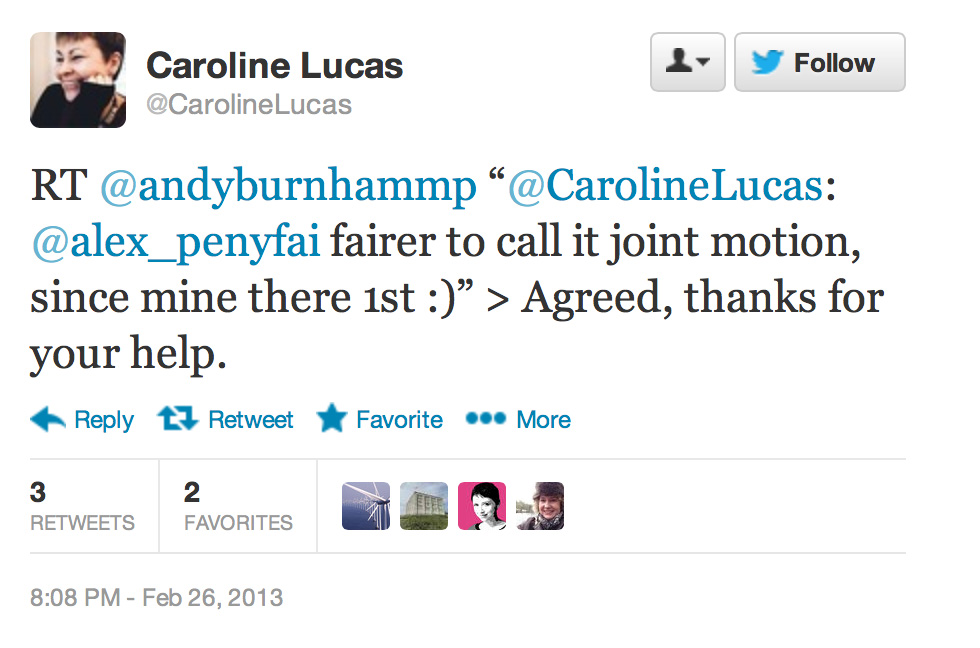The most unlikely “rainbow” Coalition of people has united against backdoor NHS privatisation by the Conservative Party.
On a day when Centrica/British Gas announced record profits, the issue came up again about how the business had made massive profits while putting its prices up, and how there was no real competition in this crowded, fragmented market of few suppliers. Such suppliers constitute an ‘oligopoly’ as the barriers-to-entry to competition are sufficiently high, meaning that the big players in it are able to return massive dividends year-on-year.
For example, the Independent reported this morning:
This phenomenon of fragmented markets, delivering homogeneous products at inflated prices and profits, has been a persistent trend in all privatised utilities. British Telecom is another famous example of record profits.
Another big issue has hit the news, however, that of the NHS privatisation (see for example this excellent article “The NHS as we know it needs a prayer” by Nicola Cutcher and Lucy Reynolds from the “Open Democracy” website 19 February 2013, and my article, “Competition regulations under s.75 of the Health and Social Care Act will lock CCGs into arranging all purchasing through competitive markets” on this “Socialist Health Association” blog).
Liberal Democrat Adrian Sanders MP asked this of David Cameron MP, the Prime Minister, today, how the SI had been introduced which appeared to directly ‘contradict promises in the other place’. George Osborne MP looked distinctly worried as Cameron explained that they “extended the principles of the previous government”, which is, as reasonable people concede, a total lie.
Various MPs have publicly demonstrated their opposition to the SI 2013/057 which thrusts domestic and European competition law into procurement decisions of the NHS, making the CCGs legally liable on a scale never witnessed before. Resources have not been allocated to the concomitant dispute resolution that will inevitably ensue, whether this includes Monitor, or other forms of dispute resolution, including mediation, civil litigation or arbitration. The statutory instrument, as drafted, is a disaster waiting to happen, and could be the latest line in a sequence of Coalition #omnishambles. But this one is different – as senior LibDems have broken ranks in a dramatic fashion.
Ed Miliband has tabled early motion 1104 with sponsors Andy Burnham, Andrew George, Harriet Harman, Caroline Lucas, and Rosie Winterton, calling for opposition.
The usual critics have opposed the SI and supported the EDM, including @andyburnhammp:

And @carolinelucas:
The Royal College of Physicians, which can hardly be considered a “trade union” but are instead responsible for the clinical physicians in their daily work and their training, is one of the most powerful Royal Colleges. The President of the Royal College of Physicians of London, Sir Richard Thompson, has strikingly voiced opposition:
“The Royal College of Physicians (RCP) has raised concerns with the government regarding secondary legislation that could make it easier for independent sector providers to tender for NHS work.
“Statutory Instrument No. 257 of the Health and Social Care Act 2012 bans ‘any restrictions on competition that are not necessary’. The secondary legislation states that contracts can only be awarded without tender for ‘technical reasons, or reasons connected with the protection of exclusive rights’ or for ‘reasons of extreme urgency.’
Sir Richard Thompson, president of the RCP, has written to parliamentary under-secretary of state for quality, Earl Howe, whose name the legislation is in, expressing concerns that this could destabilise complex, interconnected local health economies, in particular hospitals, leading to adverse effects on patient services. The letter highlights Earl Howe’s commitment during the passage of the Health and Social Care Bill that competition would not trump collaboration, as long as collaboration is in the interests of patients.
The RCP hopes to meet with government to seek clarification.”
Dr Mark Porter, Chair of the BMA Council, feels that it is betrayal of promises given in the parliamentary process:
“Earlier this month, documents were laid in Parliament relating to one of the most controversial aspects of the Health and Social Care Act. Ostensibly, the Section 75 regulations are intended to ‘ensure good procurement practice’, but they have given rise to concerns about just how far the Act has opened up the NHS in England to competition.
The regulations follow considerable consultation with, and lobbying by, the BMA and other unions. While the Health and Social Care Bill was going through Parliament, we proposed amendments to the relevant clauses on competition. When the subsequent draft regulations were published for consultation last July we raised concerns in a detailed response, particularly about the continuing potential for conflicts of interest between commissioners and providers.
The BMA also submitted a response to the consultation as part of the wider NHS trade union group which made clear our opposition to the overall direction of travel set by the Act, and our preference for the NHS as ‘preferred provider’ as well as some specific points about the detail of the regulations.
The government has stated that the regulations seek to ‘enshrine the principle that it is for commissioners to decide how to improve the quality and efficiency of services, and in doing so they should consider integration, competition and extending patient choice as possible means to attaining those benefits for patients’. Not great — given increased competition brings huge risks to the NHS — but better than where we were at the start of the Bill when there was no mention of integration, and no assurances that commissioners could determine the best approach for their populations.
However, differing legal analyses of the impact of the regulations in practice have emerged and there are growing concerns that commissioners — the clinical commissioning groups — may be forced to open up provision of almost all services to a market of providers.
Given this uncertainty about such an important issue, we have added our voice to calls for the Government to clarify further the scope of the regulations through a parliamentary debate. Debates of this sort are unusual but I think it’s in everyone’s interests to get this before Parliament as soon as possible.
Mark Porter is chair of BMA Council”
Prof Steve Field, the former head of the Government’s ‘listening exercise’ over the health act, furthermore has expressed his concern over the proposed wording of the competition legislation, saying there should be no backtracking on previous committments ministers have made to put patients first. Prof Field is an extremely influential voice in these proceedings, and is mentioned here in this Pulse article:
“The former head of the Government’s ‘listening exercise’ over the health act has expressed his concern over the proposed wording of the competition legislation, saying there should be no backtracking on previous committments ministers have made to put patients first.
Professor Steve Field, the former chair of the NHS Future Forum and currently the NHS Commissioning Board’s deputy medical director, called for clarity regarding whether they met the promises made by ministers at the time the Health and Social Care Act was reviewed.
Commenting via the social networking site Twitter, Professor Field said the NHS Future Forum had been clear that competition was ‘not an end in itself’ but should be used to improve patient care.
He said: ‘There should be no backtracking on Government commitments. We had assurances that they would be true to their commitments when we presented in the Cabinet room in Downing Street and in their response to our papers. I have been assured that this remains the case. But the wording concerns me.
‘I would like to see the Government clarify how the regulations are consistent with the commitments that they gave the NHS Future Forum and the public generally.’”
It of course goes without saying that the National Health Action Party is strongly against this statutory instrument, asking for complete withdrawal:
And, of course, other members of the general public, nearly totalling 200,000 so far, have made a powerful stance through ’38 degrees’:
There are bound to be activities going “on behind closed doors”, but at least it has not been a fait accompli already.







Pingback: URGENT New threat to the NHS – 7 ways you can help! | Abetternhs's Blog()
Pingback: My blogposts on Section 75 Health and Social Care Act and NHS England Procurement Regulations (SI 2013/057) | Legal Aware()
Pingback: My blogposts on section 75 NHS competition regulations and the current situation - Socialist Health Association()
Pingback: Many people were warning about competition in the NHS long before Polly Toynbee. Me for example.()